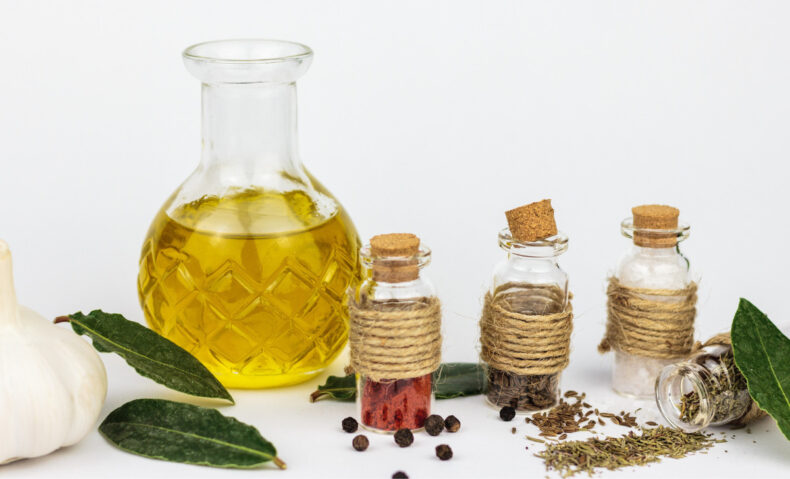Ayurvedic Oils glories in its centuries-old perplexing and extravagant history of traditional herbal medicine treatment. Our predecessors and researchers educated themselves on the knowledge and culture of Ayurveda with the help of the Sanskrit manuscript ‘Charak Samhita’, a book on medicinal plants and herbs, written by the father of Ayurveda and Ayurvedic medicine Maharishi Charak.
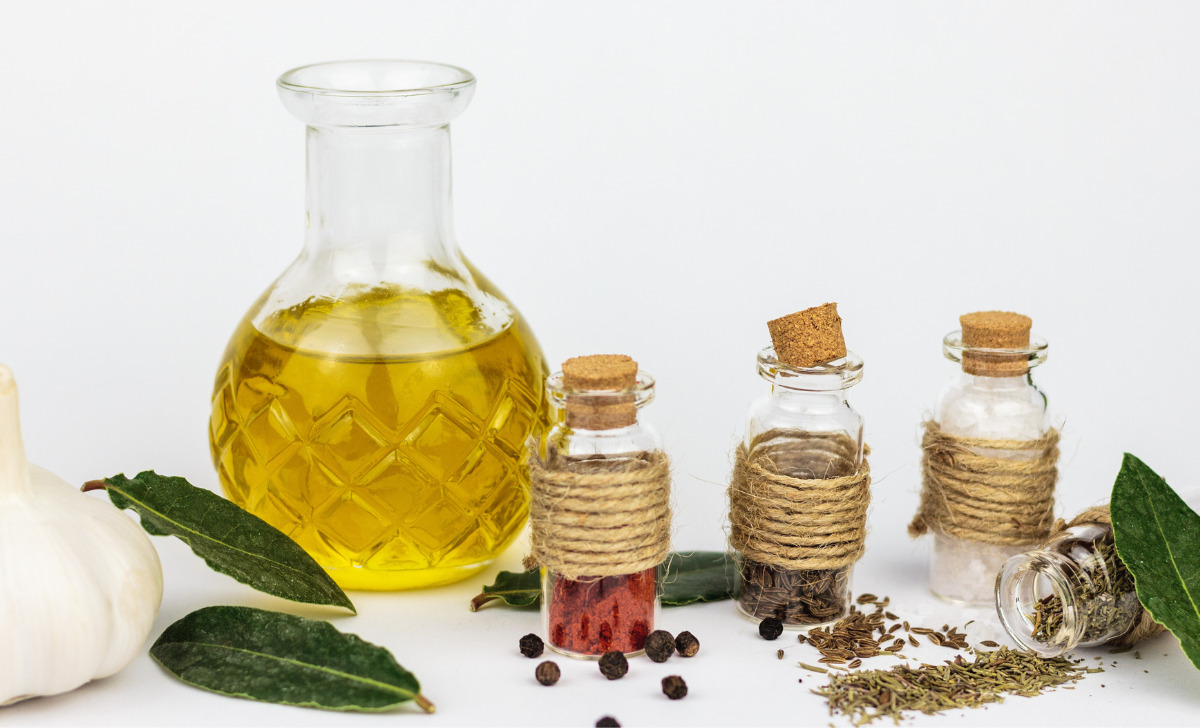
The history of Ayurveda and how Maharishi Charak found the wisdom of Ayurvedic medicine is fascinating. It is believed that the Hindu God Brahma, the creator of the Universe, indoctrinated Lord Indra, sages and other believers about the healing properties of medicinal herbs through the essence of Vedas. Agnivesha determinedly amassed the knowledge from Vedas and composed it, which was later edited by Maharishi Charak and came to be known as ‘Charak Samhita’.
Healing properties of herbs were written as poems called Shlokas. These shlokas were studied by sages to learn the importance and application of Ayurvedic medicines. The encyclopedia of these shlokas is the four Vedas: Yajur Veda, Rig Veda, Sam Veda and Atharva Veda.
Ayurvedic Oils and Doshas
Doshas in Ayurveda are considered the models and principles based on which various Ayurvedic medicinal combinations are assigned to people according to their physiological, psychological and spiritual needs.
Ayurvedic Oils ensures the sound health of our body and mind. Doshas are responsible for creating a roadmap for us to achieve our health goals and well-being. However, some scholars do not believe in the practice, gains and credibility of doshas due to the lack of scientific proof in hand.
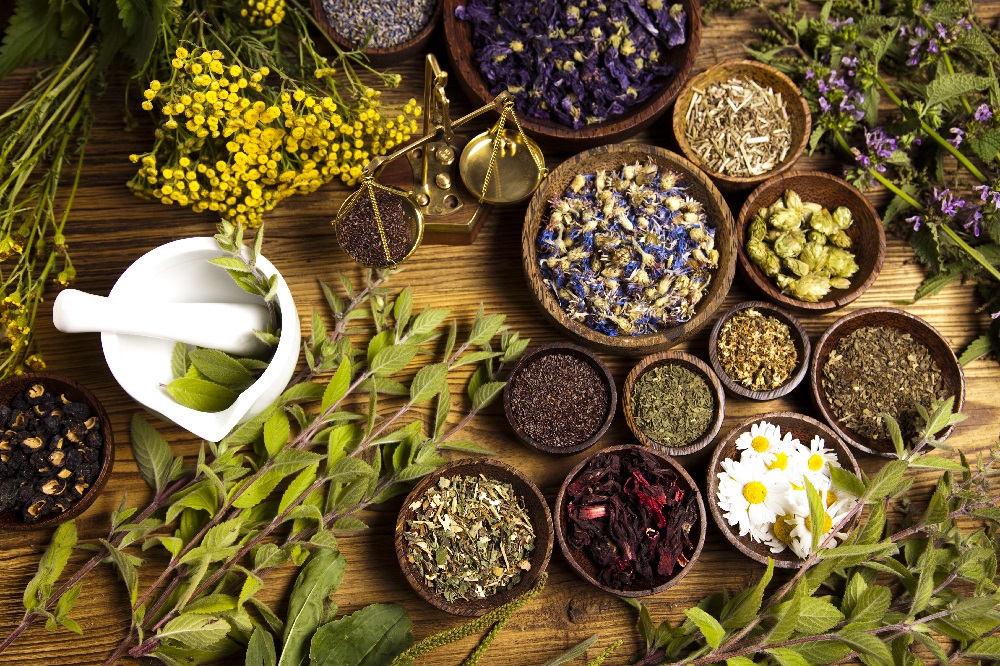
Every individual should have a balanced ratio of these doshas. There are three kinds of doshas:
Vata Dosha
Vata Dosha is responsible for our neurological and mental health problems. Weather plays a significant role in influencing the mood of people who have a high ratio of dosha. People with Vata dosha are usually spirited and creative. They are known for getting easily distracted.
According to the Mansarovar Medical College guide on Ayurvedic oils the following Ayurvedic oils are good for balancing Vata dosha-
Sesame Oil- King of Oils
Untoasted Sesame oil is considered a good remedial oil for people with imbalanced Vata doshas. Air element is prominent among people of Vata Dosha therefore it’s believed that sesame oil improves the flow of prana vayu in our body and makes it powerful.
There are four kinds of vayus- earth, fire, water and air (wind). Sesame oil benefits people who are dealing with the problem of arthritis as well.
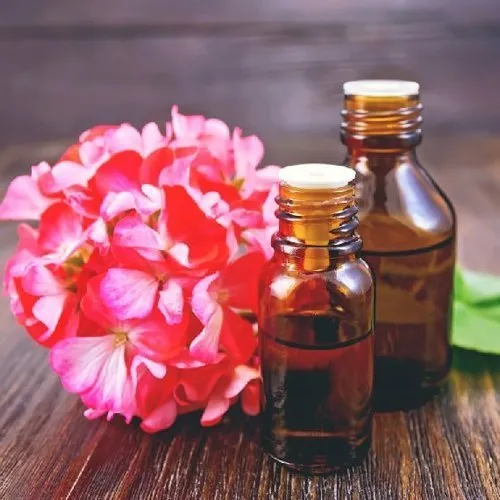
Geranium Rose Oil
Geranium Rose Oil is proven to be good remedy for both a healthy mind and body. It’s beneficial for our skin and hair as well. Geranium rose oil controls acne, improves circulation of blood, prevents bacteria that causes acne on our skin and leaves our skin looking supple, brighter and recovered.
Geranium Rose Oil is favored by ayurvedic communities for its floral scent and its viability as it promotes hair growth and keeps our scalp toned, dandruff-free, moisturized and healthy.
Examples of other such ayurvedic oils that are known to bring balance to our Vata dosha are sweet orange and frankincense.
Pitta Dosha
People who score high in Pitta dosha are known to be aggressive or short-tempered. The fire and water elements in their charts make them tenacious beings. According to a paper published by the HealthLine, it’s noted that summer and pitta dosha are associated closely as the element of fire preaches heat.

Therefore these people are suggested to include oils with cooling and calming effects.
People with Pitta dosha are strongly driven by their ambitions and stay highly motivated. Their aggressive nature can sometimes hamper their decision-making capacities. Pitta season brats like to be challenged and competed with.
The Oils that aid in balancing Pitta dosha are as follows:
Coconut Oil
Coconut Oil is known best for its healing and soothing properties. The oil is used for its cooling effects, it relieves mood as well as controls dryness and breakage in the heat of summer and pitta dosha. Coconut oil safeguards the protein content in our hair and moisturizes them adequately.
According to Medical News Today, Coconut Oil should be used with precaution and expert advice must be taken. The oil is known to cure acne but it’s not recommended for people of all skin types.
People with oily skin may face the problem of clogged pores due to the coconut’s comedogenic tendencies. In some cases, the acne got even more severe after the application of coconut oil.
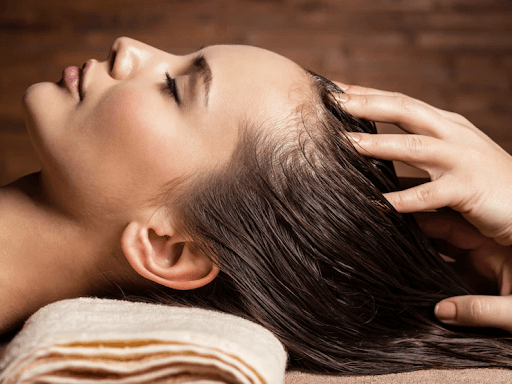
Sandalwood Oil
Sandalwood Oil is good for the management of your stress and sleep schedule. Most cleanser adverts make sure they include the mention of sandalwood in their product promotions as its healing properties are skin-friendly.
Sandalwood heals acne scars and pigmentation. Good remedy for those dealing with dry skin as it effectively smoothens the skin and moisturizes it. Add it as a supplementary ingredient in your homemade facial masks.
More examples of Pitta Dosha Oils are Rose oil and Fennel oil.
Kapha Dosha
The season of spring is dedicated to the Kapha people. Earth and Water are the prana vayus for this Dosha. People with moderate to high ratio imbalance in Kapha Dosha are known for their giving and caring nature.
These people have good control over their anger and handle tense situations with ease and comfort. Kapha dosha people are spirited and calm people who practice attention and equanimity in their everyday lives.

Kapha dosha people are advised to avoid eating unhealthy or oily and packaged foods. They are advised to inculcate the use of ayurvedic oils in their self-care regime as that can boost their energy and enhance the quality of their life.
Recommended ayurvedic oils for Kapha Dosha people are as follows:
Rosemary Oil
If you’re tired of applying concealer on those dark circles or dark spots, then rosemary oil has some good news for you. The oil is known for its anti-aging and anti-inflammatory properties. Rosemary oil evens out the skin tone and leaves the skin looking vibrant.
Rosemary oil aids good blood circulation which further prevents the possibility of hair loss due to lack of blood reserve reaching the hair follicles. If used as a hair oil it can prove a good solution for controlling and managing dandruff in your hair.
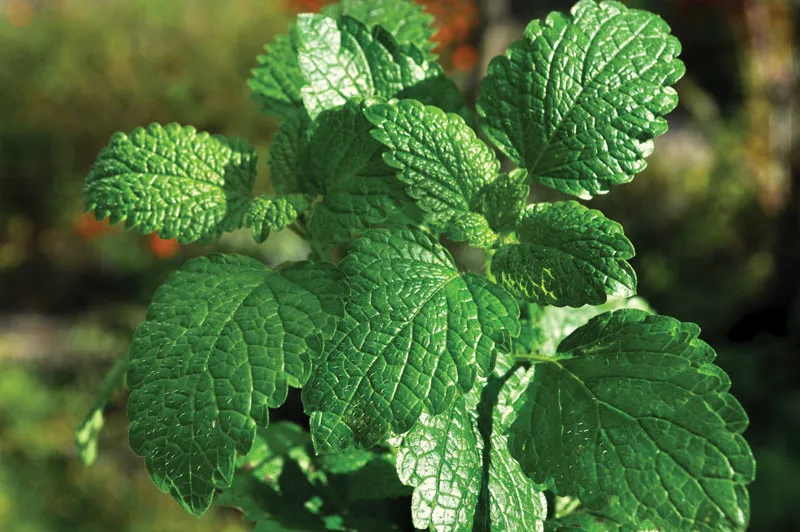
Peppermint Oil
Peppermint oil is cherished for its cooling effects. The oil promotes good hair growth and a study established that peppermint increased the number of follicles and follicle depth, thus making the hair appear lively and healthy.
Eucalyptus and Basil oil are other examples which are known for their healing properties and are beneficial for people with Kapha dosha imbalance.







